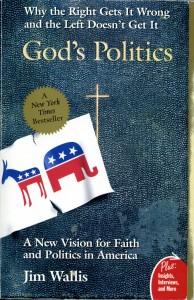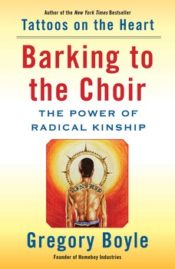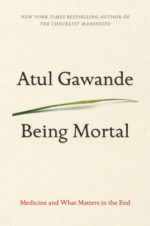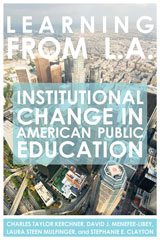Some Post-Election Thoughts about God’s Politics
Posted on | November 10, 2012 | Comments Off on Some Post-Election Thoughts about God’s Politics
In the run-up to the election season, I gave a little talk based on Jim Wallis’ book God’s Politics, extending his ideas about prophetic politics—“not future telling, but articulating moral truth”—to big-issue organization in congregational and community life. That talk, including stories of the prophets in my own life, is available by clicking here.
But the election is over, and musing about God’s Politics will take place within the context of the results.
This was a turning point election, like Roosevelt in 1932 or Reagan in 1980, which defines the country and its direction. Even more than 2008, it illustrates that beneath the money-fueled hate speech and engineered paranoia, the United States is a vast, tolerant, and reasonably forward thinking country.
The diverse winning electorate represents a new dominant force in public life, perhaps a long lasting coalition that will rival FDR’s without the taint of the old Southern Democrats. Social and demographic change was the key to the election. It was not that Governor Romney failed to energize white voters; he did as well as any Republican. But they were not enough.
Obama’s win was remarkable on several fronts. He had a lot going against him. The economy has been sluggish, and the President bore some responsibility for that. No incumbent president has been elected with unemployment as high as ours. He faced intense ideological backlash in 2010 that was not effectively countered until this year’s campaign was in full swing. Even then it came at the self-destructive hands of his opponent, who scrambled so far to the right to win the nomination that he couldn’t Etch-a-Sketch it away. Even his autumn rebirth as a moderate could not erase the “47%” and “self-deport” statements that were an accurate reflection of the values of his base.
Through all this, God was invoked frequently but I am not sure our heavenly parent was well listened to.
Poverty got an airing, but not a real one. The economy faces real and persistent structural problems that neither party has addressed well. Both the engine of the economy and its distributional equity need fixing. It’s not just jobs that are important; our children and grandchildren need good jobs, those that will allow them to marry, buy a house, and raise a family. These are real family values.
Protecting the planet morphed into a discussion of who’s drilling what oil. I do not believe that there is a stronger Christian imperative than to care for the planet. If that is the case, it’s also an imperative to craft workable solutions and to win friends for them.
Health care became a referendum on Obamacare and reproductive rights. Untouched were the more substantive issues about how the country actually keeps healthy. No one said much about obesity and diabetes, the twin plagues of affluence. (These are topics that the Inland Empire Sponsoring Committee is wrestling with. For more, talk to Chuck.)
Finger pointing about big money politics turned into a “we can play this game, too” exercise. In one of his few recorded acts of anger, Jesus, did, in fact, chase the moneychangers from the temple. He did not seek a franchise for his moneychangers. We cannot have a democracy when access to power requires endless fundraising.
I’ve got other pet issues that I’d like to think that God would care about, but I’m not sure. Radio and television bandwidth is public property. It’s time for the Federal Communications Commission to reintroduce the fairness doctrine. Initiative and referendum in California were designed as a way for citizens to act when their government wouldn’t. It’s become a playground for special interests and the gadfly rich. Proposition 13 was sold as a way to keep widows from losing their homes. It’s become a highly inequitable anchor on government that has destroyed town and school district grassroots democracy by removing the right to raise taxes for the uses that people see as the most immediate.
Finally, Mr. Jefferson’s barrier between church and state was one of the most important beliefs of our founders. For the sake of the church as well as the state, it needs to be reinvigorated. God’s politics and partisan politics are not the same.
God is not a Democrat or a Republican. Keep saying that over and over again.





